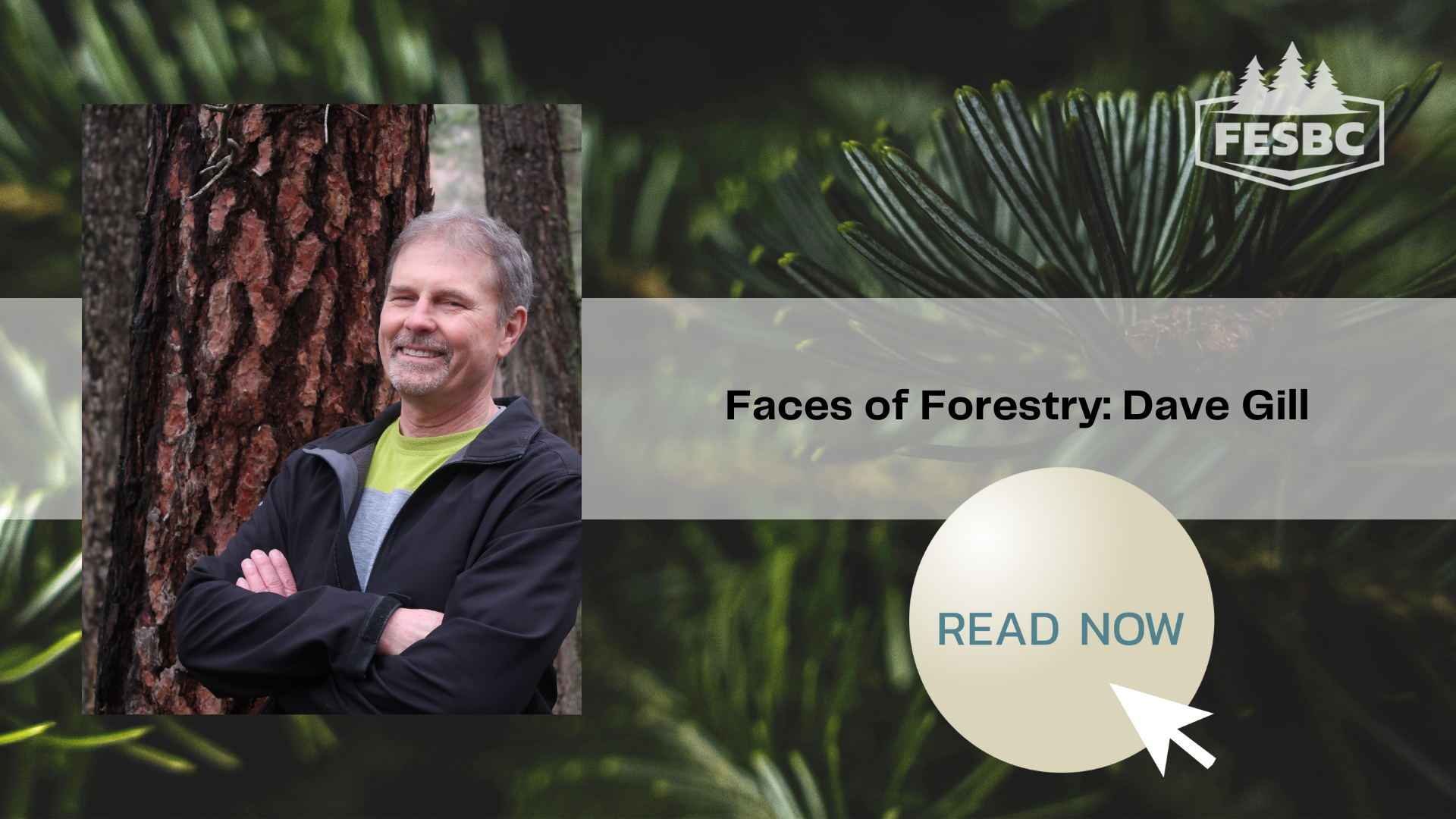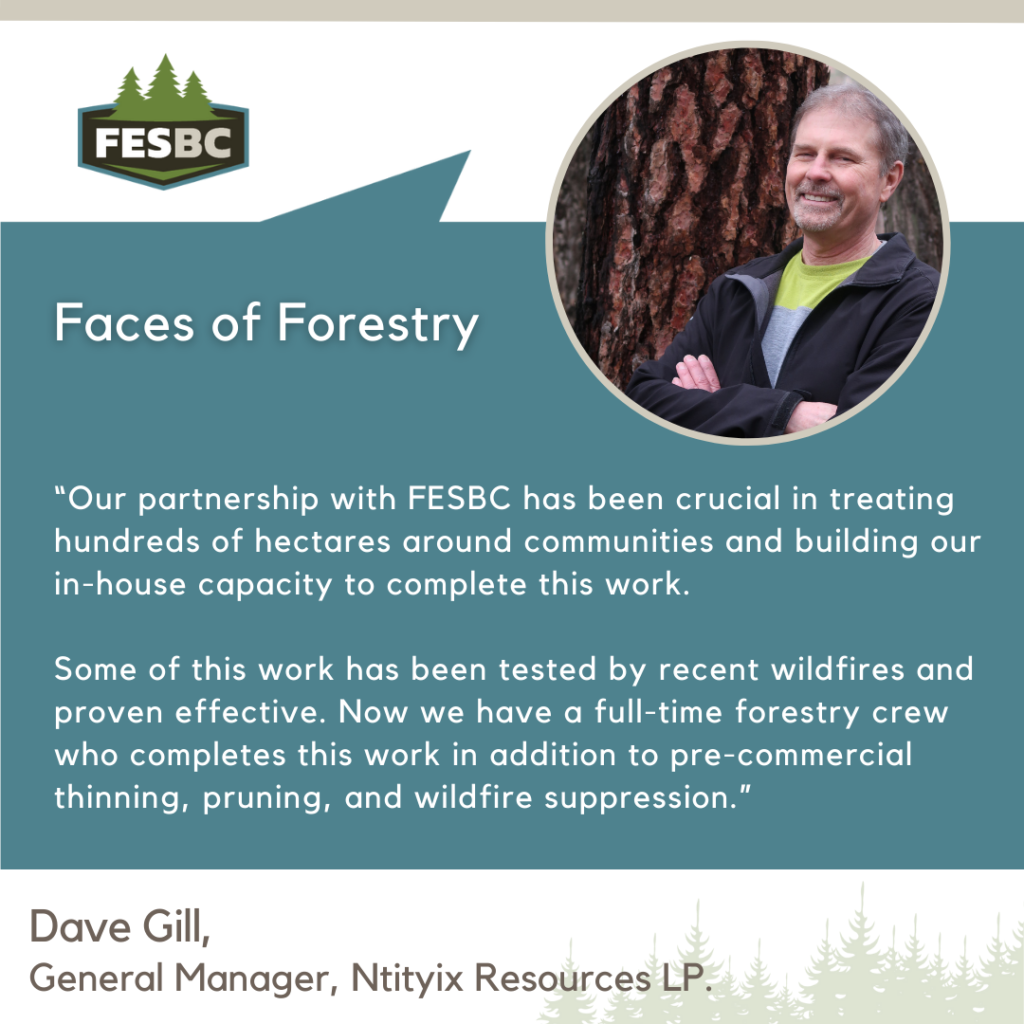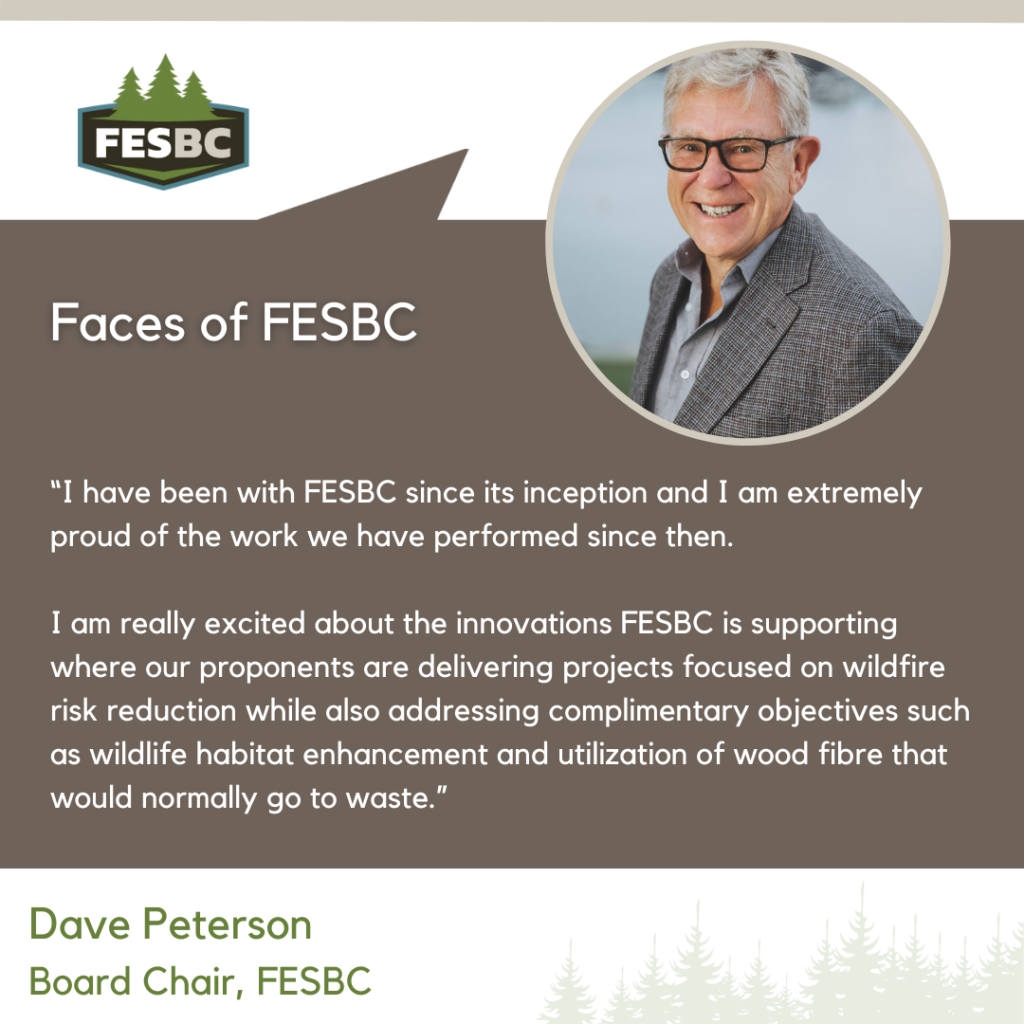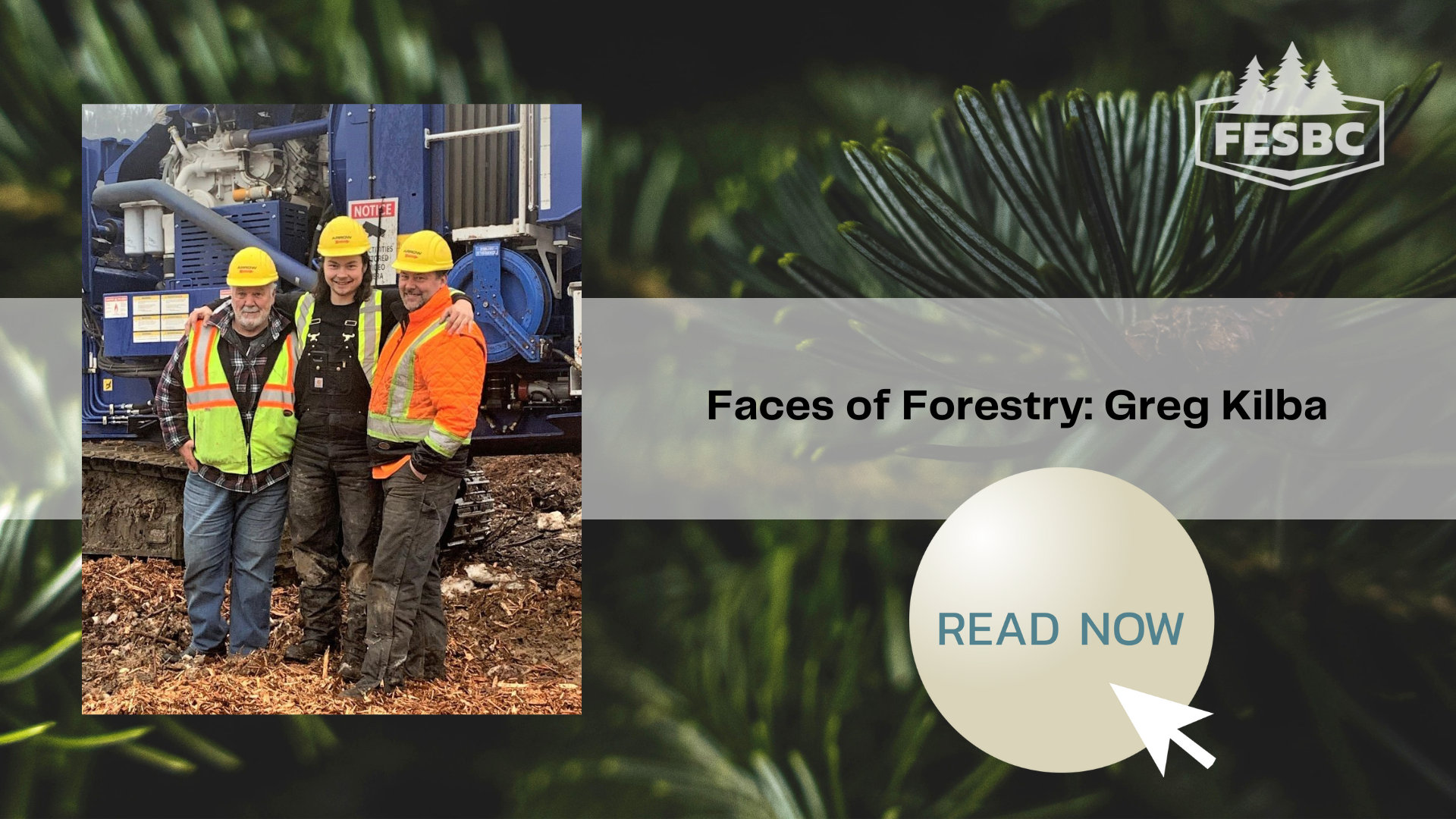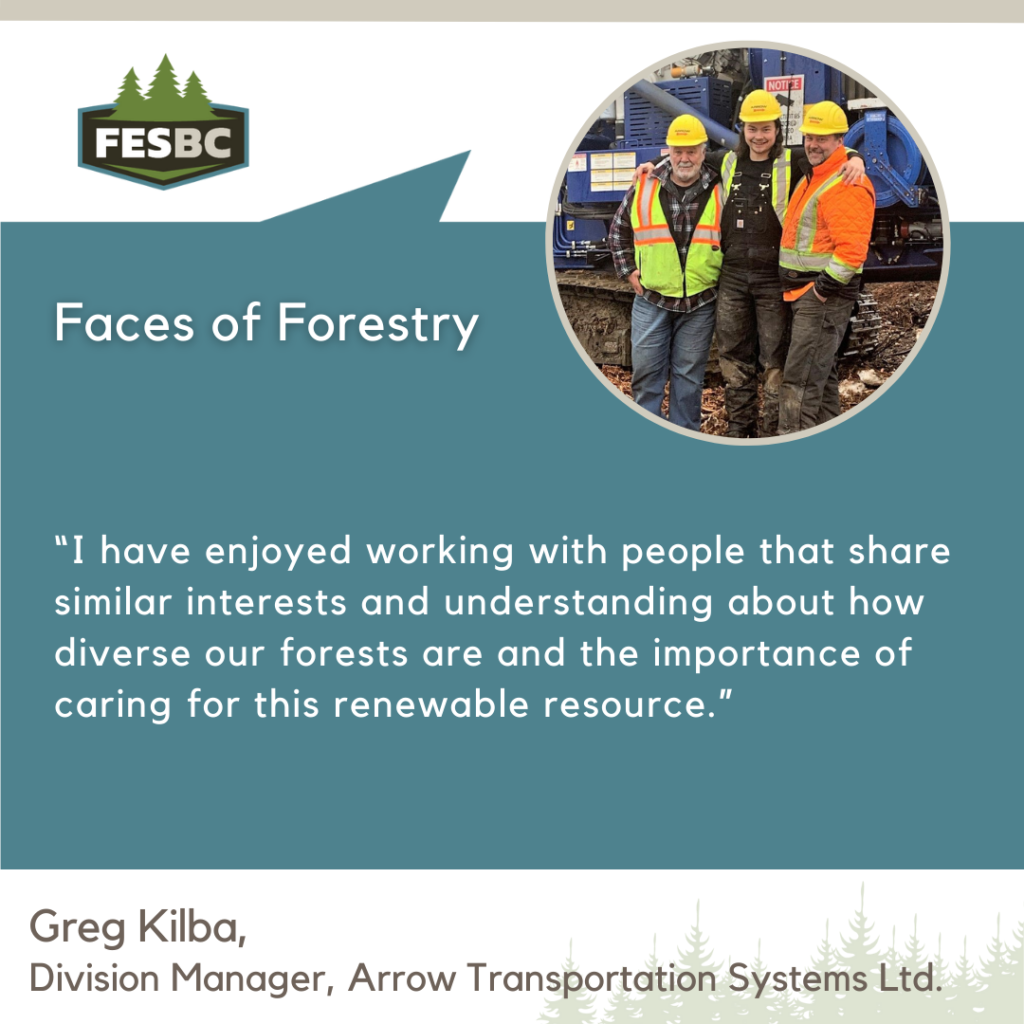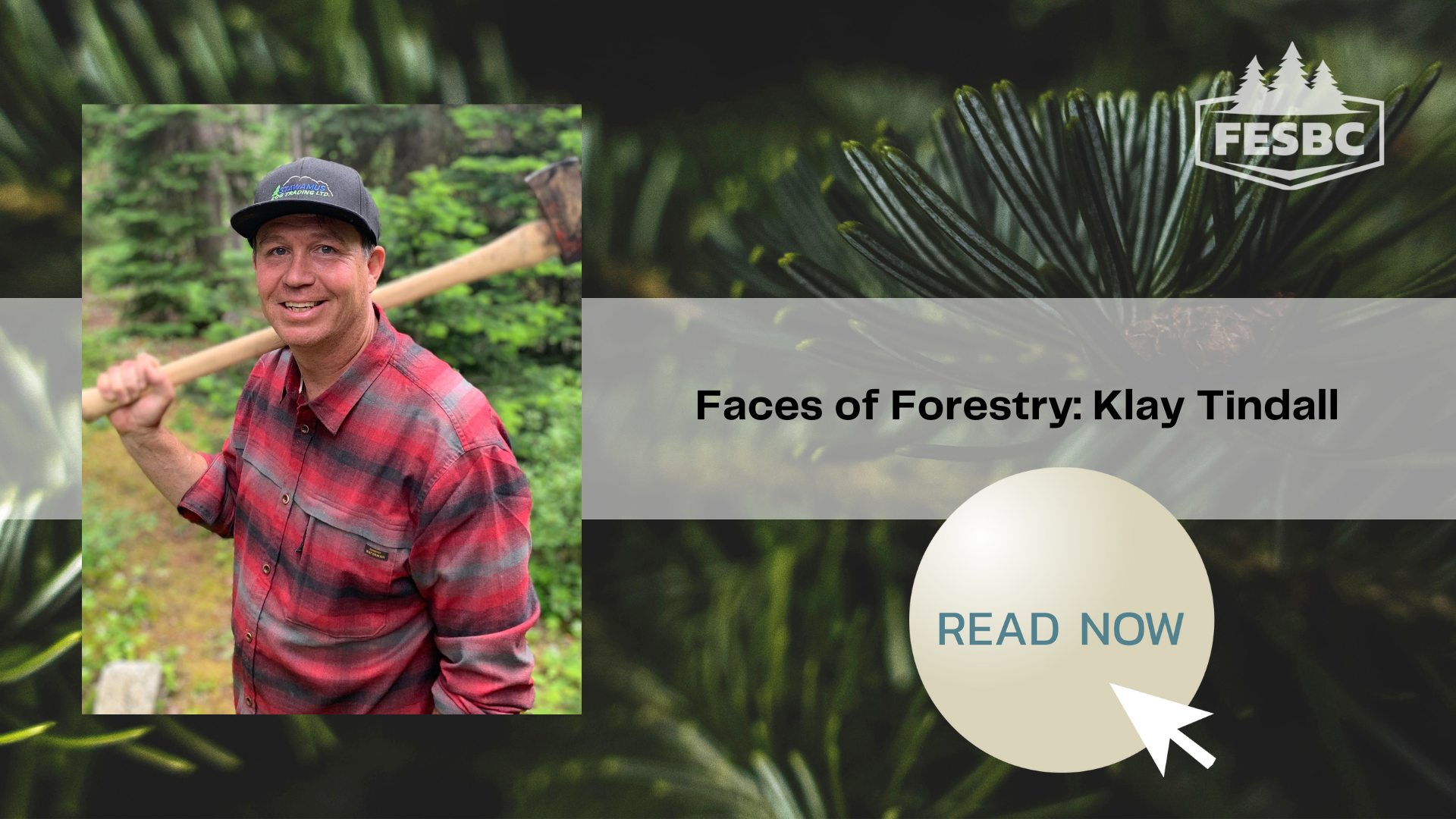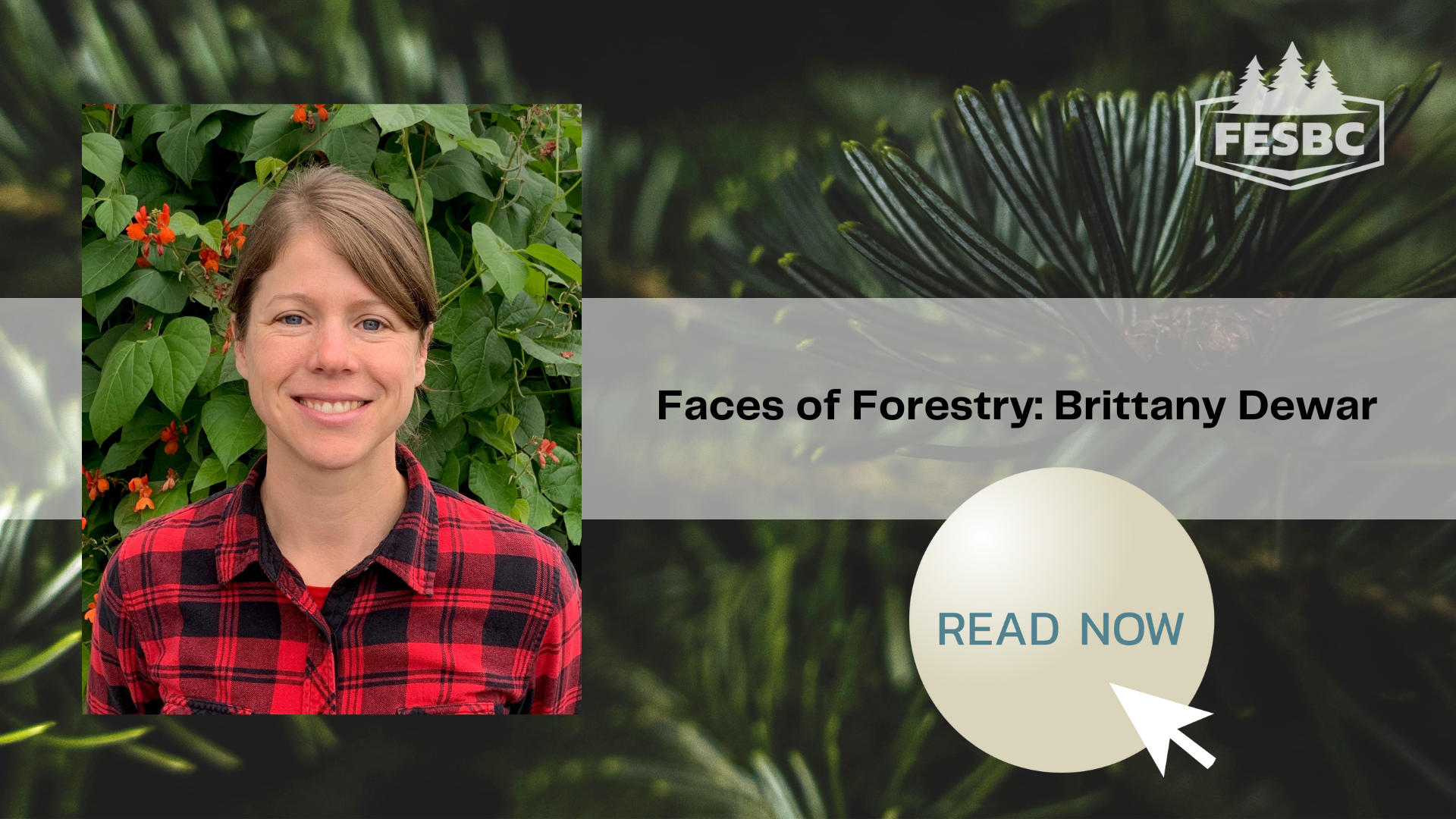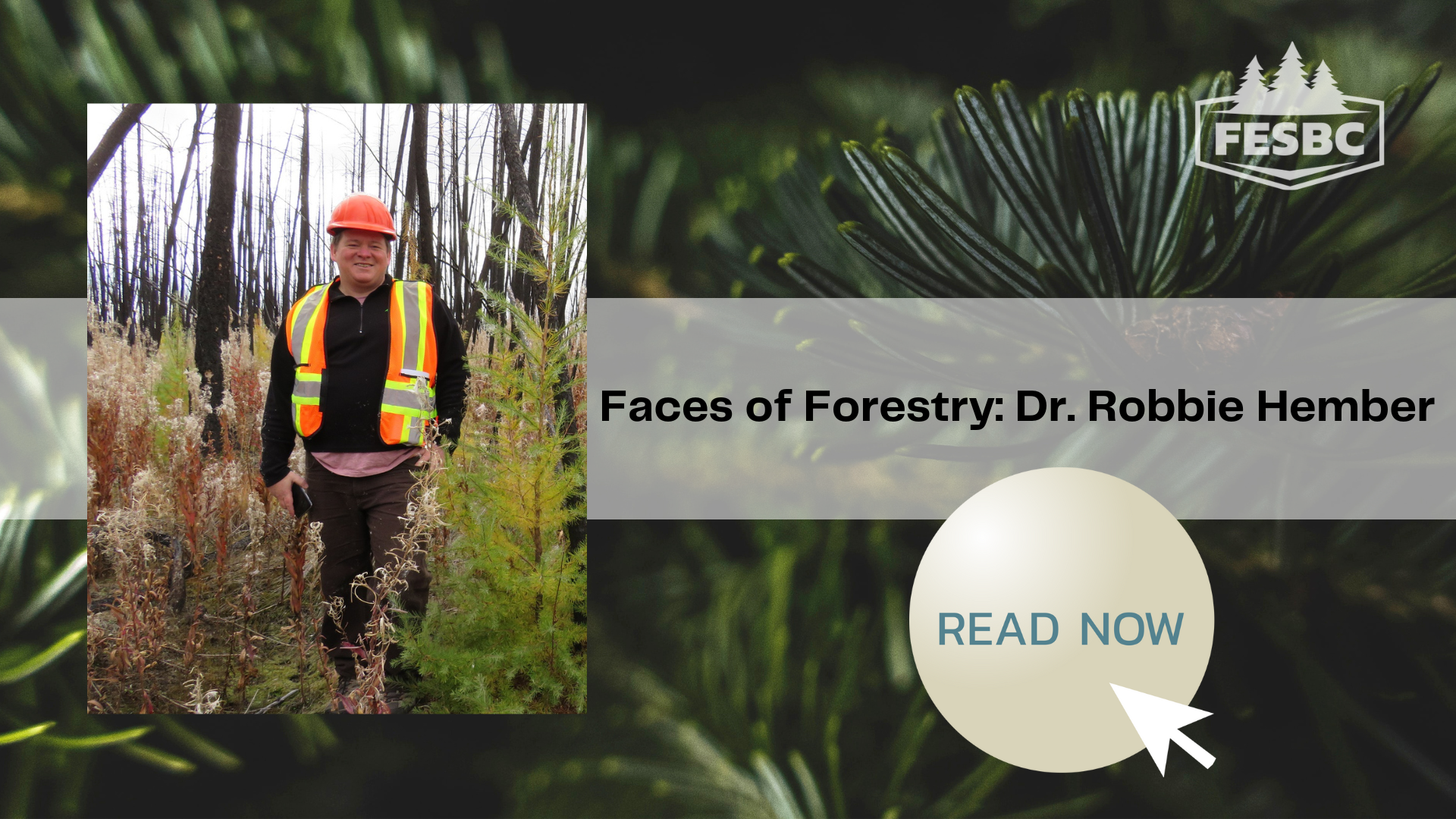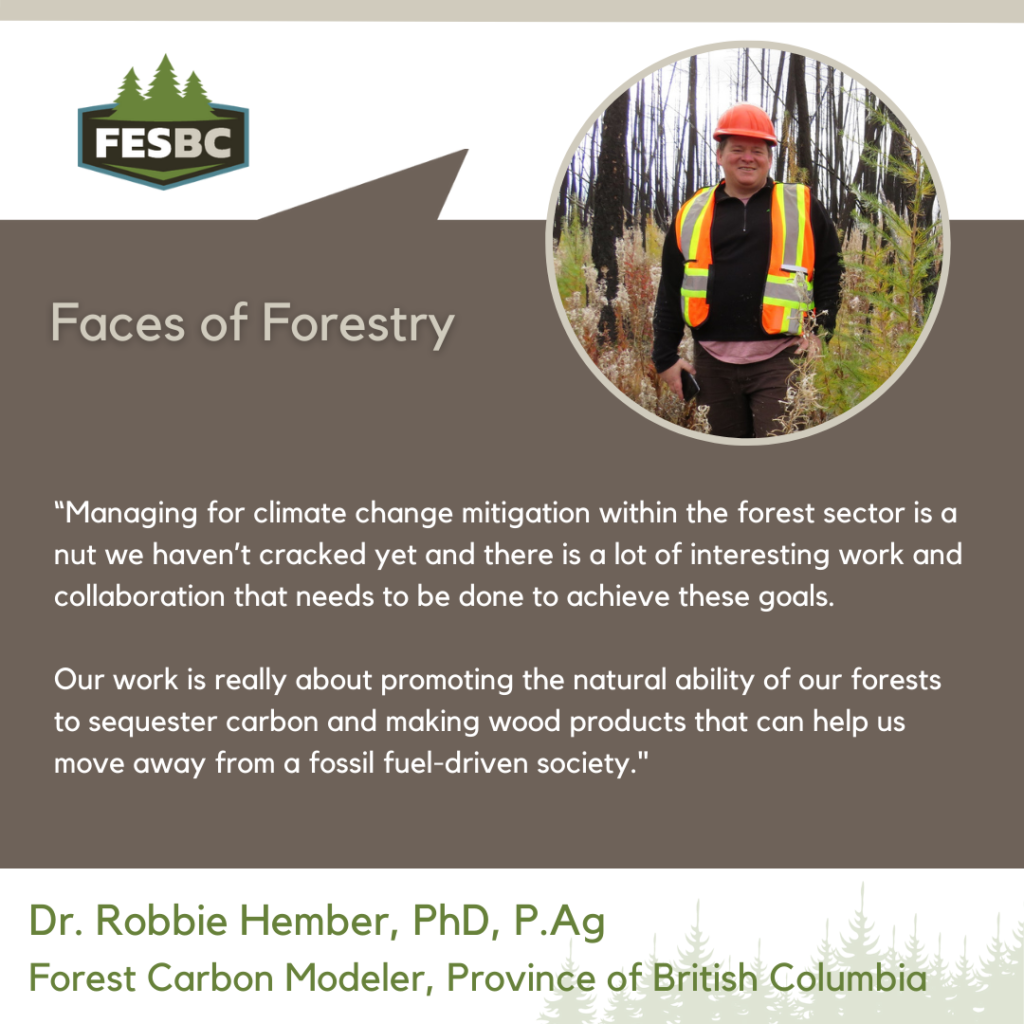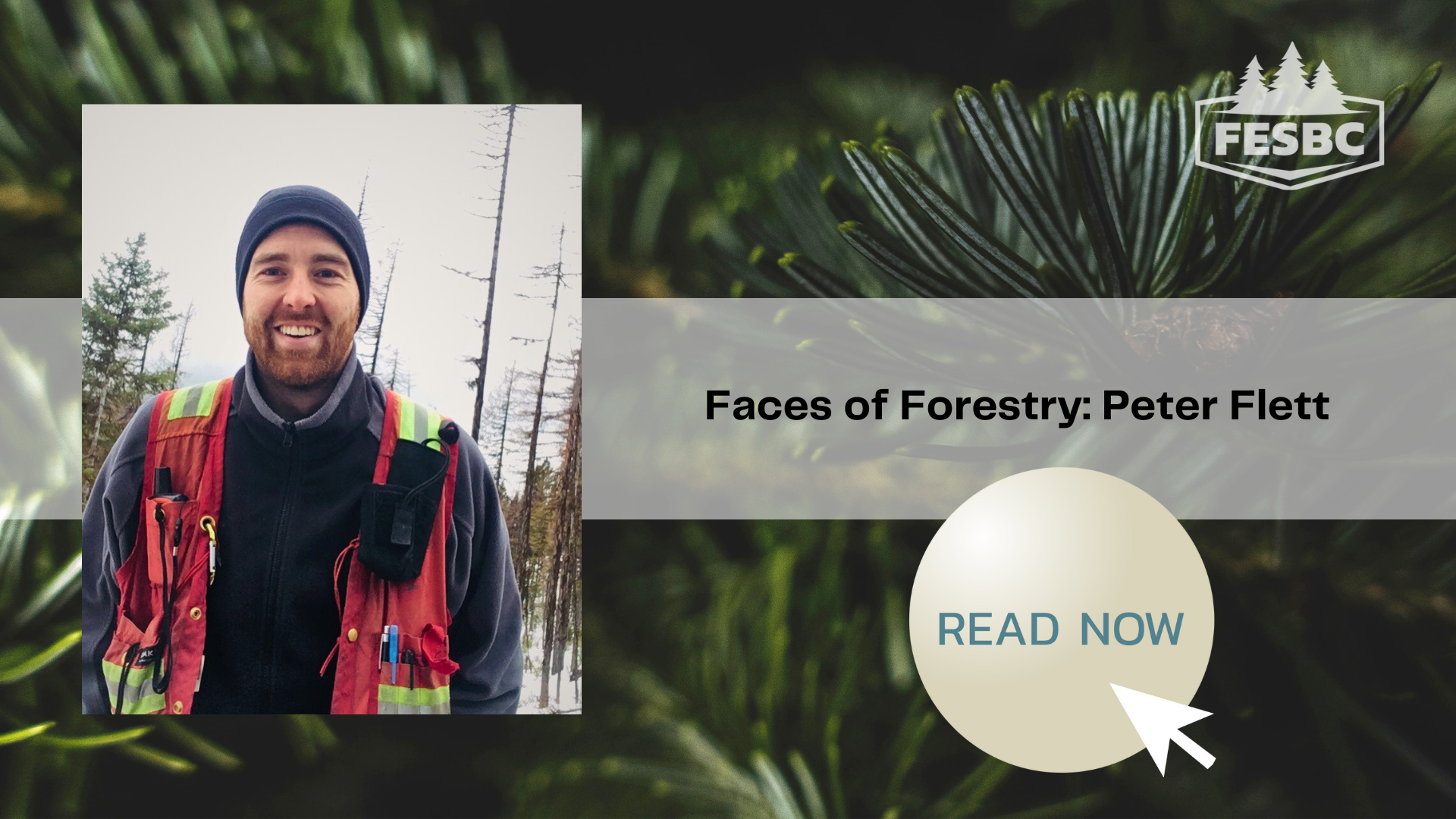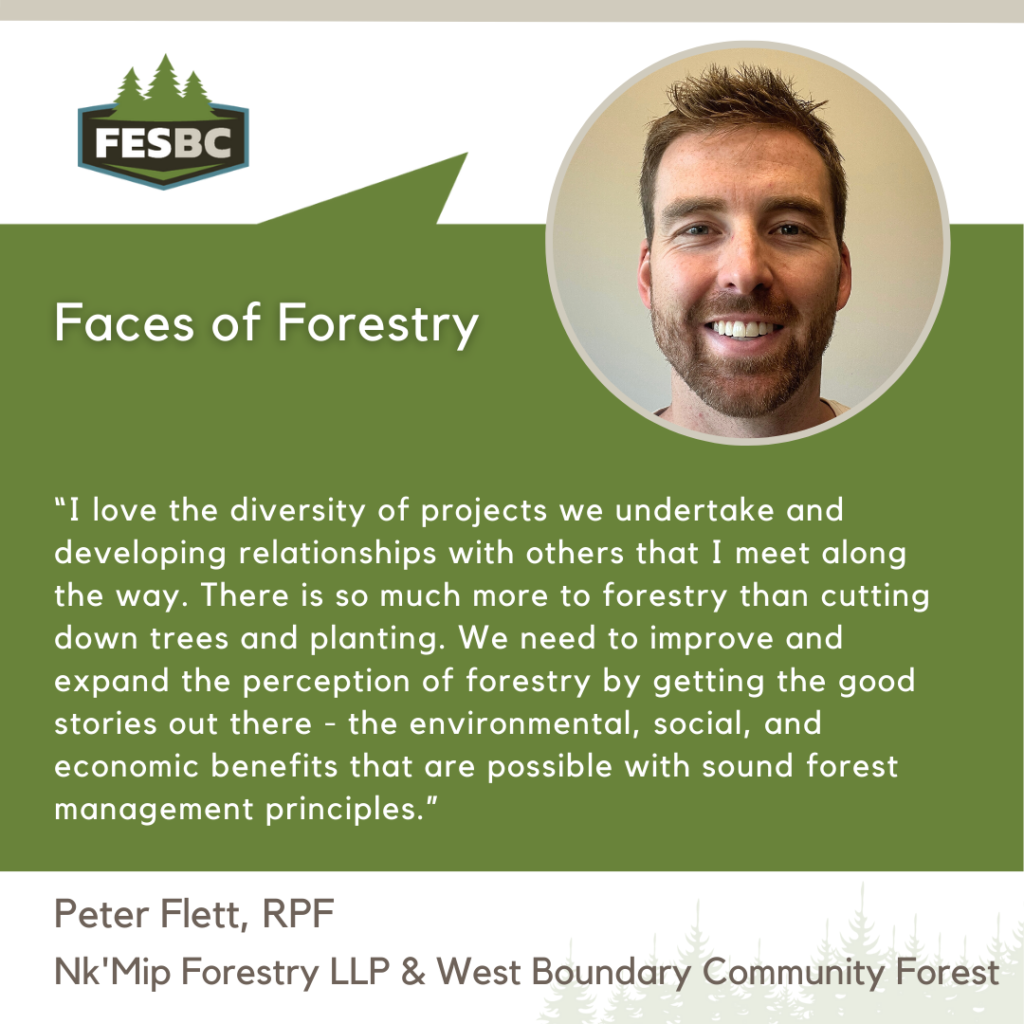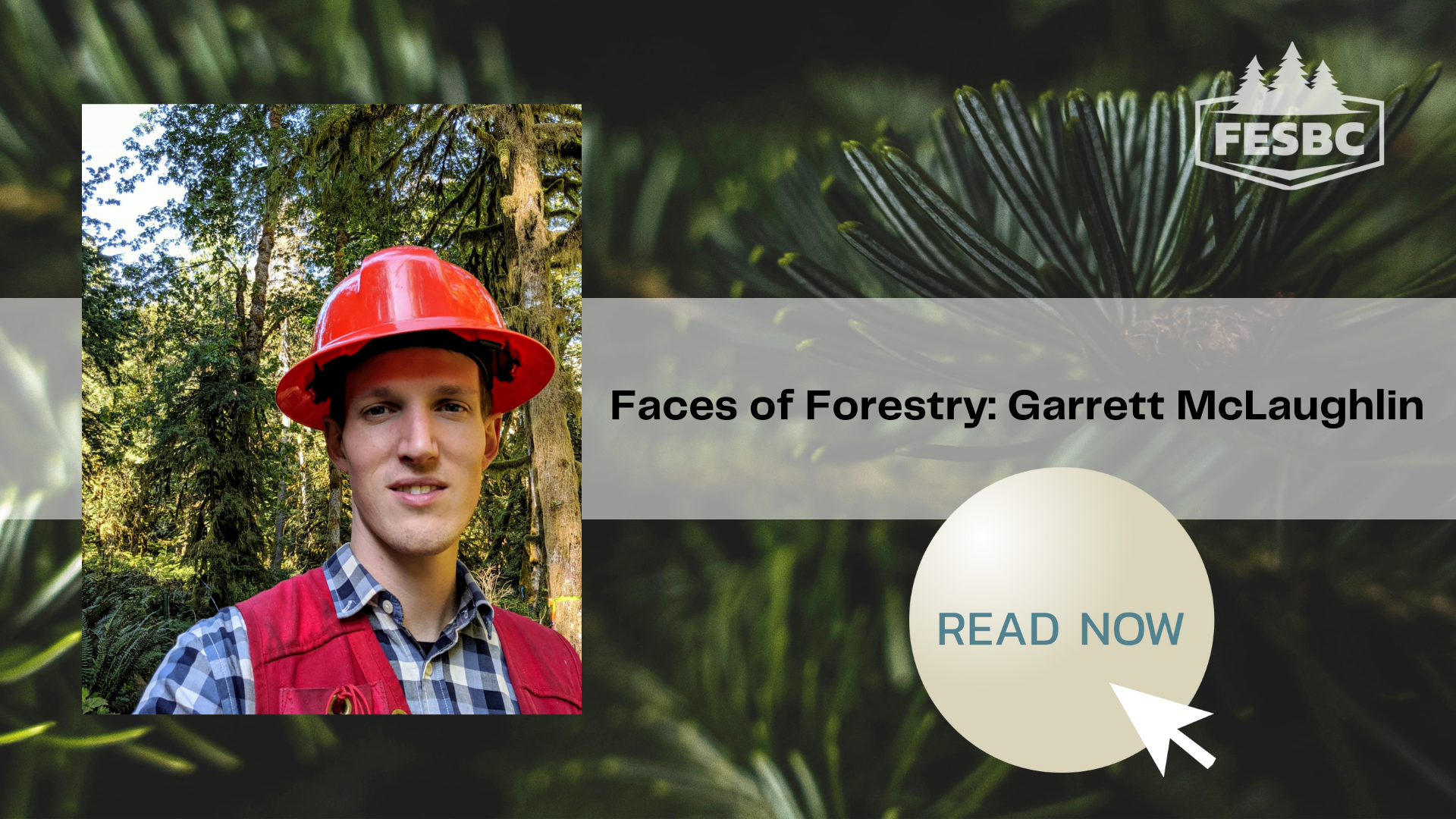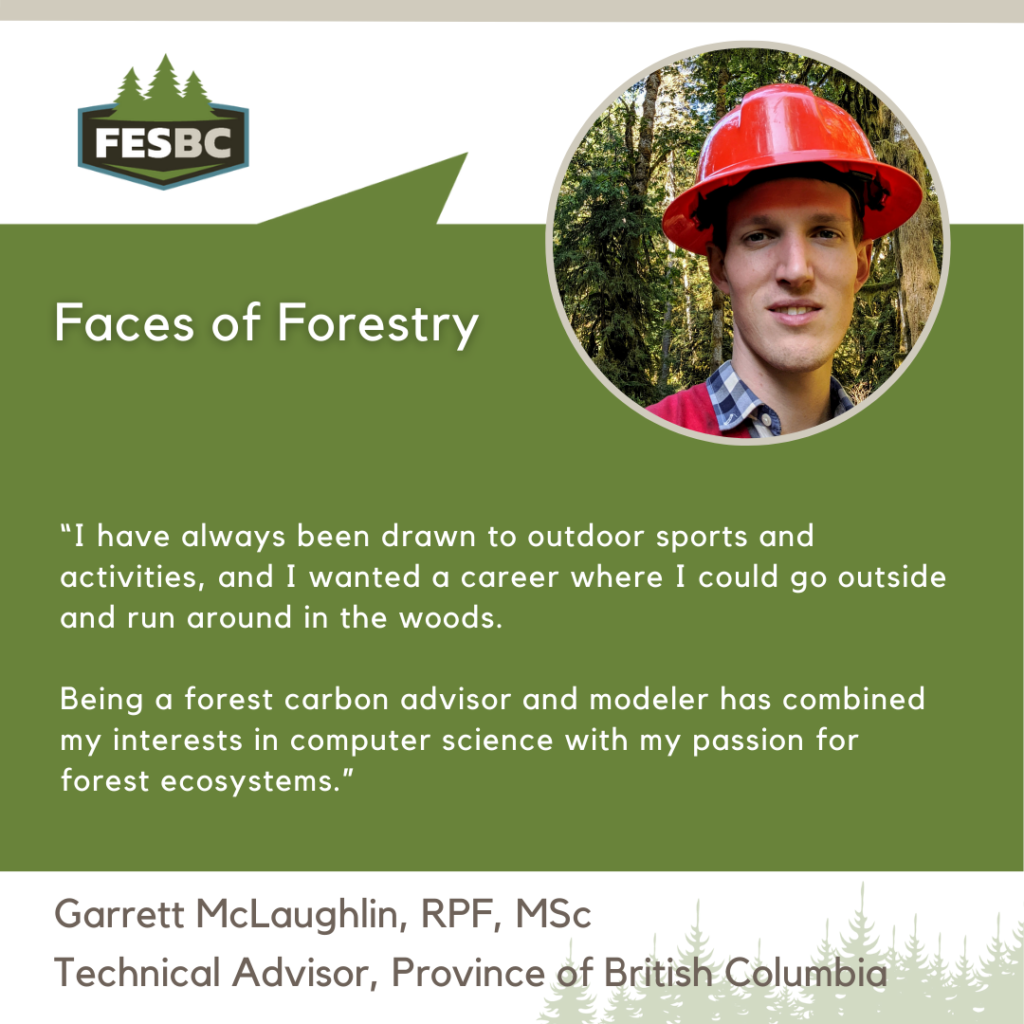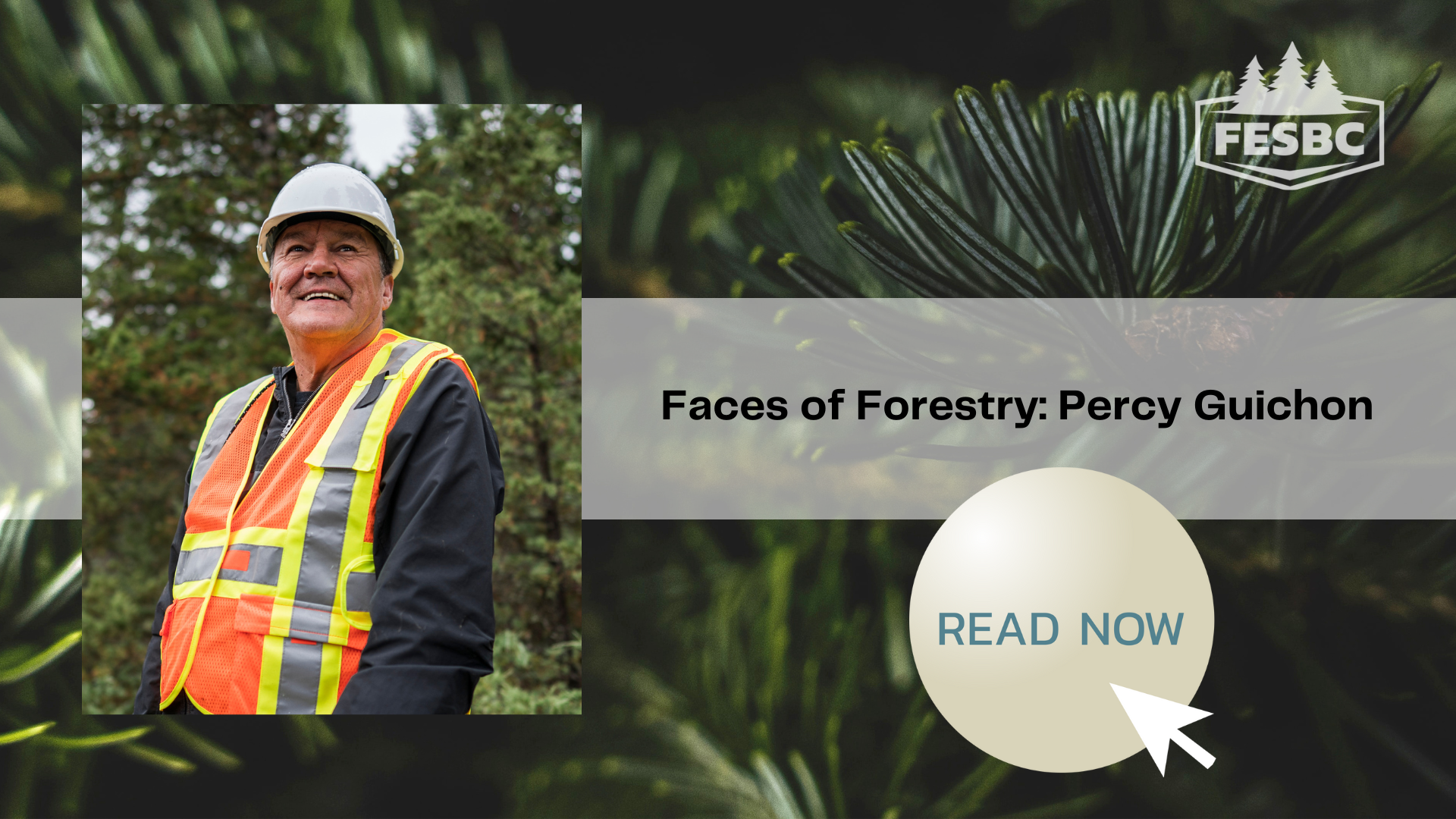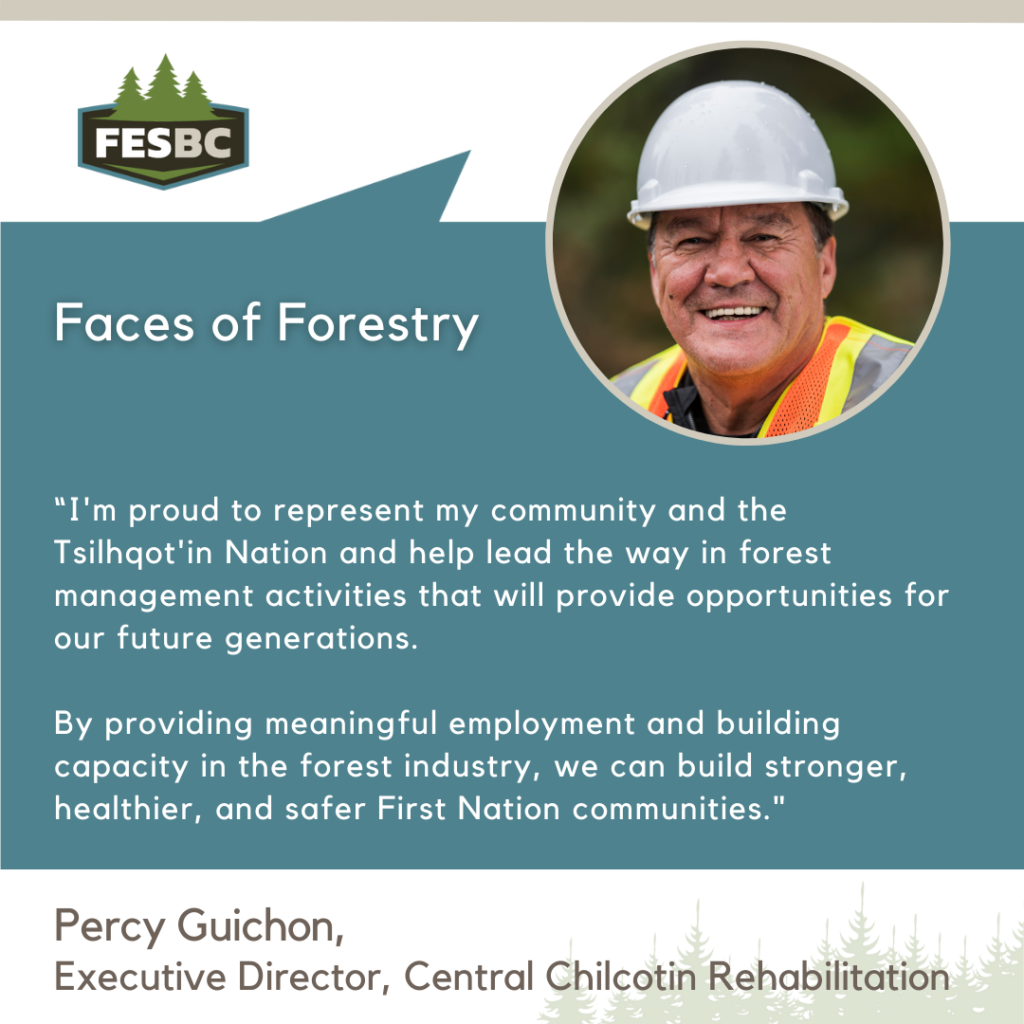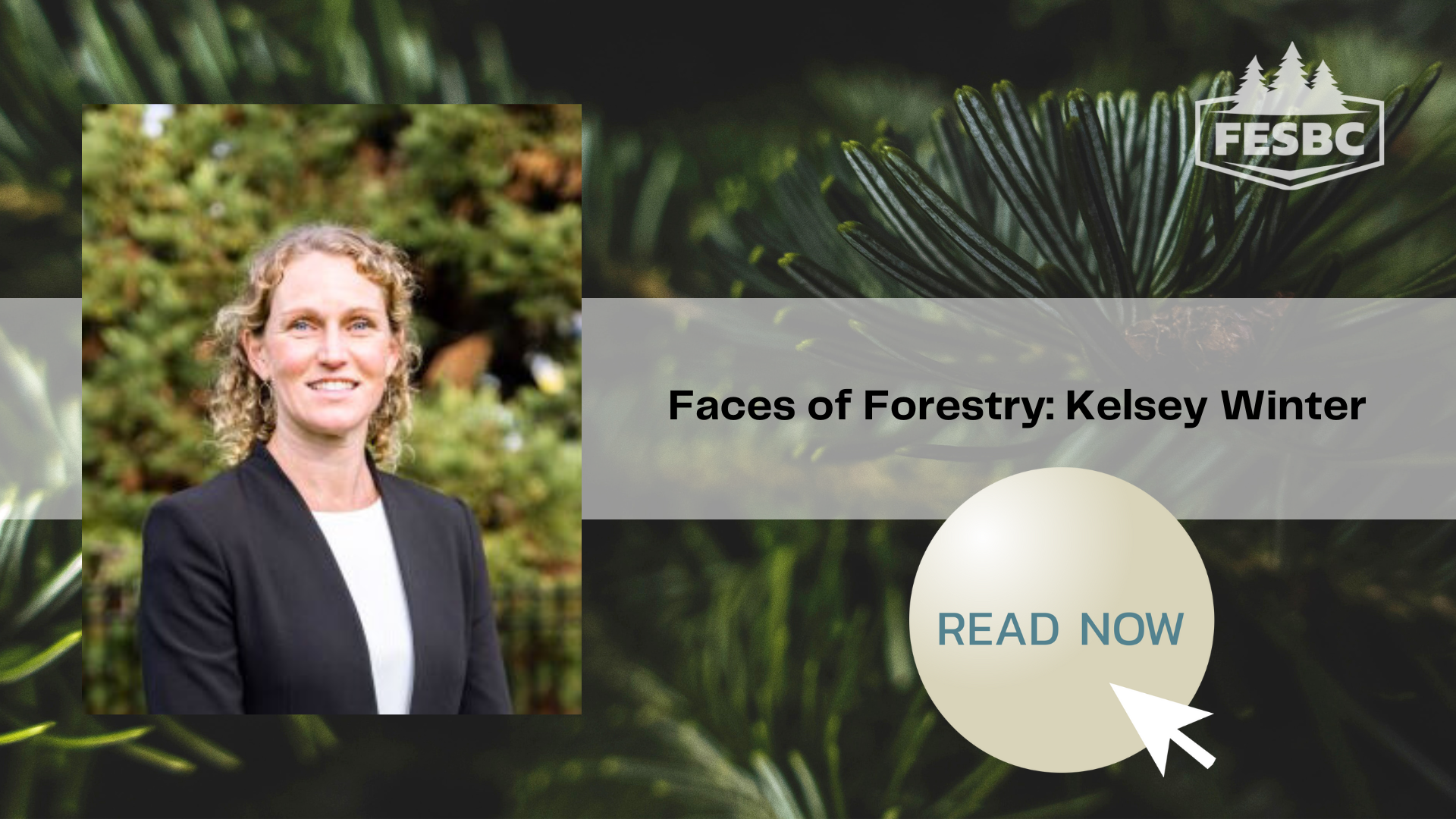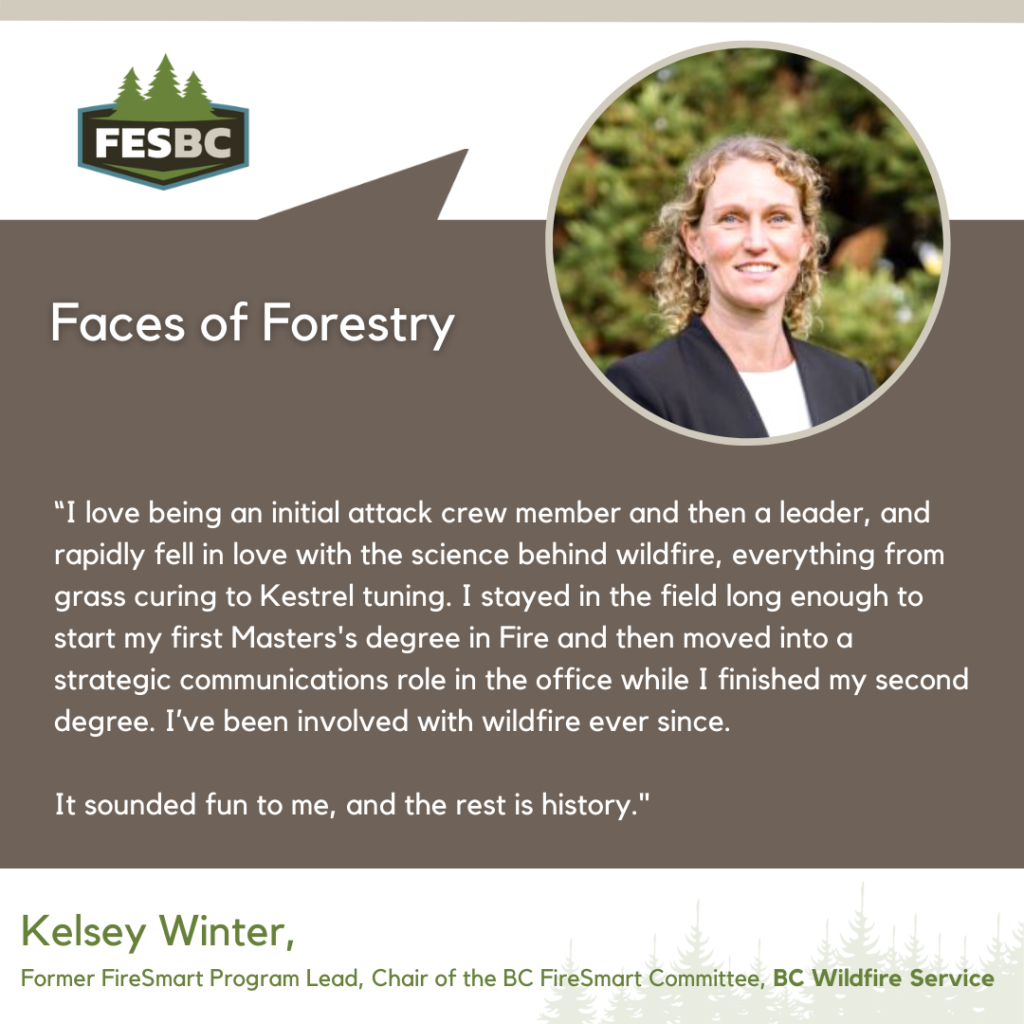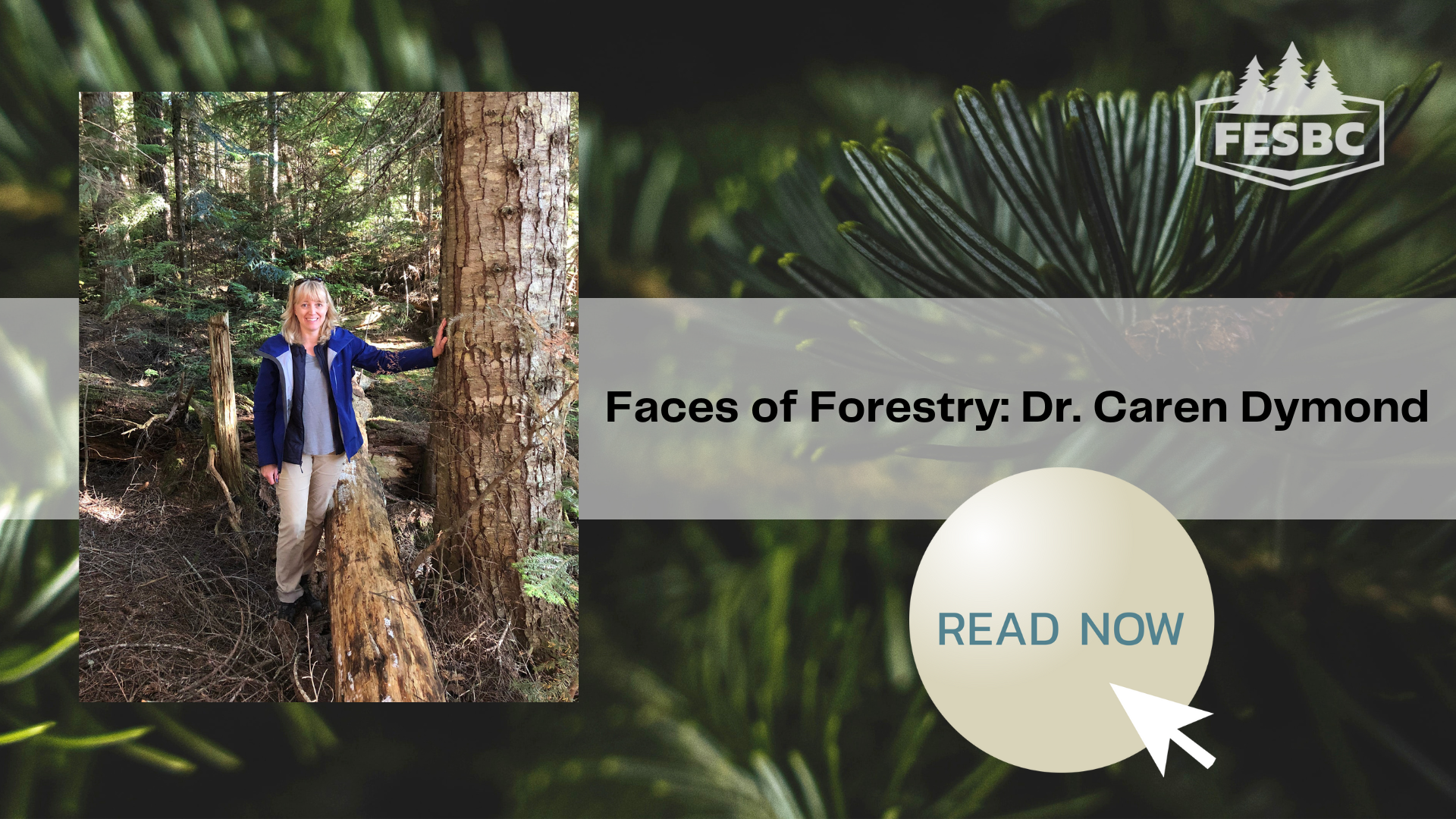Faces of Forestry is an initiative of the Forest Enhancement Society of BC (FESBC) to highlight people doing great work to enhance our forests throughout British Columbia. In this month’s Faces of Forestry, we are featuring a Face of FESBC to highlight one of the exceptional individuals on our Board of Directors who helps guide our organization toward impactful change.
This month, we feature Ken Day, FESBC’s Board Secretary and a Registered Professional Forester with 44 years of experience.

Throughout his career, Ken has made significant contributions to the forestry sector, spending most of his professional life working for the University of British Columbia as the Manager of the Alex Fraser Research Forest near Williams Lake.
Following his retirement in 2018, he transitioned into forestry consulting, where he continues to make a positive impact on forest management practices, mainly focused on the intersection of fire and silviculture in dry Douglas-fir forests.
Before coming onto the Board of Directors, Ken was involved in proposing and executing projects for clients with FESBC’s support.
“I think the work we are funding around fuel reduction and silviculture is critical to protecting communities and making our forests more resilient. I also really appreciate the role FESBC is playing by funding projects that are important to First Nations,” he shared.
With his extensive forestry background, Ken is pleased to be part of FESBC’s Board of Directors and work with the other members to set the organization’s strategic direction.
“As Board Secretary, I have some additional duties around governance and recruitment, but our excellent staff keep that workload very light,” he added.
Looking ahead, Ken is optimistic about the impact of new projects, particularly those focused on biomass utilization and community wildfire protection programs.
“I am also glad to see more thinning projects turning on as a result of our support to get fibre moving to consumers,” he added.
Ken stressed the significance of these initiatives in promoting sustainable forestry practices and acknowledged that forestry is much more than logging and sawmills.
“Forestry is foremost a science and a craft of growing trees and forests for all the ecological, cultural, and economic values they provide,” he said. “We are on the cusp of change right now, as First Nations bring their cultural and ecological knowledge to bear on the way we manage forests in British Columbia. FESBC is helping to speed up the process by supporting projects that are meaningful to First Nations.”
Beyond his work with FESBC, Ken is deeply involved in his community. He is passionate about mentoring young professionals and serves on the boards of the Williams Lake Community Forest and Scout Island Nature Centre. Additionally, he has been a dedicated member of the Canadian Ski Patrol for 23 years and a grandfather for 10 years.
Thank you, Ken, for your passion, expertise, and dedication to fuel reduction, fibre recovery and preserving habitat values. Your contributions to FESBC and local communities are deeply valuable and inspiring.


